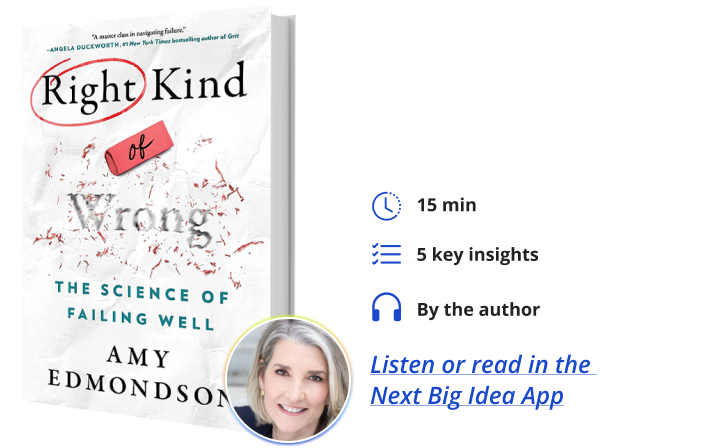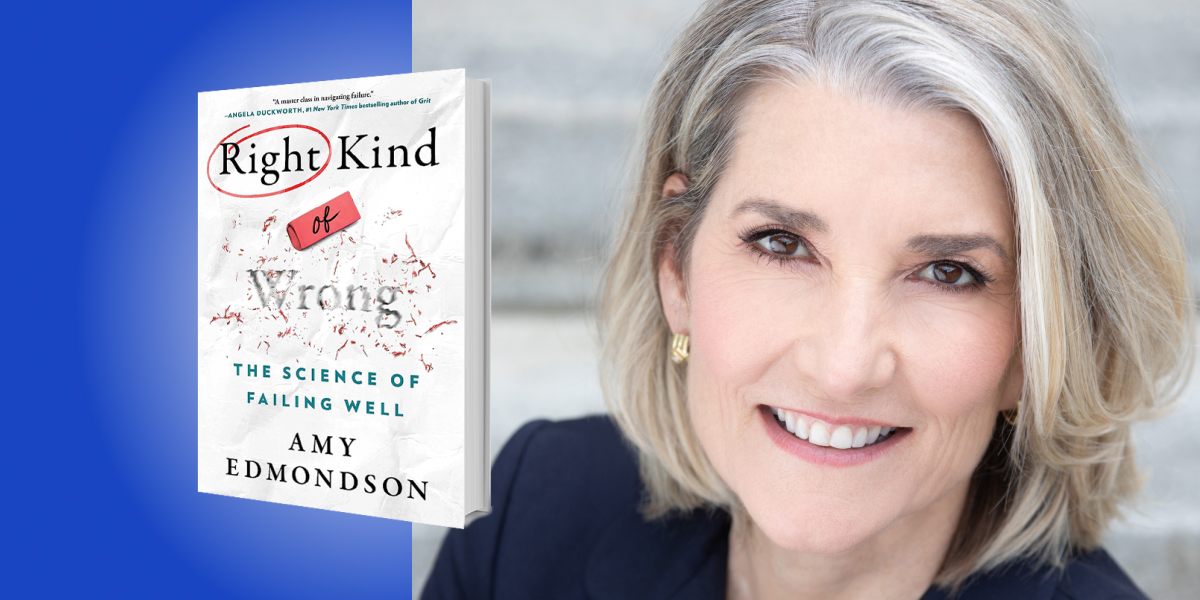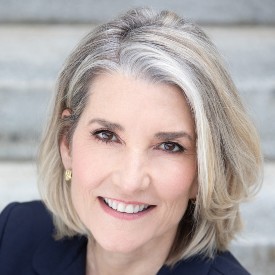Amy C. Edmondson is the Novartis Professor of Leadership and Management at the Harvard Business School, renowned for her research on psychological safety over twenty years. Her award-winning work has appeared in the New York Times, The Wall Street Journal, Financial Times, Psychology Today, Fast Company, Harvard Business Review, and more. She was named by Thinkers50 in 2021 as the #1 Management Thinker in the world. She received her PhD, AM, and AB from Harvard University.
Below, Amy shares 5 key insights from her new book, Right Kind of Wrong: The Science of Failing Well. Listen to the audio version—read by Amy herself—in the Next Big Idea App.

1. All failure is not alike.
Some failures are indeed bad, and they can and should be prevented as often as possible. But some failures are genuinely good because they bring valuable new knowledge that couldn’t be gleaned any other way.
I call these intelligent failures. That’s not an oxymoron. A failure is intelligent when it occurs in new territory, in pursuit of a goal (whether finding a life partner or making a scientific breakthrough). Also, you had good reason to think what you tried might have worked. Finally, the experiment was appropriately small, so as not to incur undue financial, reputational, or safety risks. Intelligent failures are the right kind of wrong. They bring the keys to innovation, adventure, and great success in almost every field.
2. Mistakes and failures are not synonymous.
While reducing mistakes in your life and work is a worthy ambition, avoiding failure is not. This is not because mistakes are smaller than failures. It’s because mistakes can be avoided with vigilance and care. There are readily available best practices for doing just that at home and at work. Mistakes, by definition, are unintended deviations from pre-specified standards, procedures, rules, or policies.
“Failure is an outcome that deviates from a desired result.”
With vigilance, training, and teamwork, mistakes can be reduced to near zero in the contexts where excellence matters most. In contrast, failure is an outcome that deviates from a desired result, whether that be failing to win a tennis tournament, a startup that goes broke, or overcooking the fish meant for dinner. Some failures are caused by mistakes (overcooking the fish); some are caused by skill or training shortcomings (perhaps the tennis tournament qualifies); but others are the unavoidable, and useful, results of smart experiments. These again are intelligent failures.
3. Learning from failure is not as easy as it sounds.
Learning from failure sounds pretty straightforward, right? Take a look and figure out what went wrong and don’t do that again. But, as human beings, we’re up against several worthy foes that challenge our ability to learn from the failures we experience in our personal lives and in our work.
First, a spontaneous aversion to failure makes us reluctant to take a close look to analyze and learn exactly what happened, how we contributed, and what we can do better next time. Second, an erroneous belief that people learn more from success than from failure often makes us not even bother to try. Third, it’s easy to stop with the most superficial analysis: for instance, you might simply resolve to try harder next time. Finally, our embarrassment about sharing our failures with others limits the ability of our families and teams to learn from failure vicariously.
4. The most successful pilots of new products and services are riddled with failure.
If you’re in charge of a pilot to test a new innovation, it’s tempting to want it to succeed with flying colors. It’s tempting to do everything in your power to ensure that everything goes well, even if that means your test of the innovation is nowhere close to representative of real operating conditions.
A telecommunications company I studied went through an embarrassing and expensive new service launch fiasco after a picture-perfect pilot of a new technology. You might say, the company’s pilot failed by succeeding, when it should have succeeded by failing! By not doing the work to discover the vulnerabilities that needed to be fixed before a full-scale launch, the pilot failed the company and its customers.
“It’s tempting to do everything in your power to ensure that everything goes well.”
Instead, organizations need to create incentives that motivate project leaders to ensure enough was learned and enough was changed so that the launch of the innovation at scale is a soaring success. An effective pilot is riddled with intelligent failures that generate valuable information about what isn’t quite ready for prime time.
5.The most successful people in every field have a healthy relationship with failure.
Nobel-winning scientists, elite athletes, and technology innovators fail more frequently—not less —than most people. Without their failures, their extraordinary successes would have been impossible.
What do these resilient game changers know that most people don’t? It starts with their willingness to take smart risks, knowing full well that some of them will end in failure. They eschew comfort to pursue growth. They are relentlessly curious about what might be possible.
They also have a bias for action. Truly, it’s a bias for iteration. Instead of playing not to lose, they play to win. They are not engaging in the kind of failure that comes from not trying. They are not sloppy. They’re willing to work hard to prevent the failures that can be prevented. But they are willing to stretch what’s possible because they have made friends with failure and are unusually able to glean its powerful lessons.
To listen to the audio version read by author Amy Edmondson, download the Next Big Idea App today:































